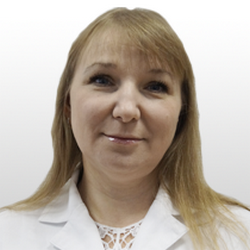How to avoid sunstroke and hospital bed
Dehydration and increased body temperature can be fatal
Heat and sun strokes are very similar to each other in many ways. The first can occur in any place where the temperature is increased — indoors, outdoors, and the second are accompanied by increased solar radiation, while air temperature is increased. The chief specialist in general medical practice of the Ministry of Healthcare of the Republic of Tatarstan, Lutsia Feyskhanova, gave advice on how to protect yourself from this: you need to follow a drinking regime, choose the right clothes, remember what medications you need to take if you have chronic diseases, especially diseases of the cardiovascular system. There is a certain category of people for whom these conditions — heat and sun stroke — can be especially dangerous. It is age groups: the elderly, children; people with certain chronic diseases, in which dehydration and increased body temperature can be fatal.

“Patients who already have chronic diseases are the most disciplined group. They know that there will soon be an increase in temperature, they take medications on time, plan their outdoor time, they are aware of possible consequences and therefore they monitor their condition in time — they measure their pressure, in some cases repeatedly for several hours when they experience some discomfort," the doctor shared his observations.
It is important, together with your attending doctor, to think over actions in advance at the time of fluctuations in the body's indicators — pressure, pulse. The attending physician will definitely explain to the patient how to get out of this or that situation. People who do not know about their diseases, about possible malfunctions of the body's systems, or for some reason are forced to be outside under the active sun or in a hot room, can get heat and sun stroke with symptoms of varying severity, Gilmanov noted.
The doctor voiced several gradations of heat and sun strokes. All of them are with the involvement of neurological symptoms.
- Mild degree: manifestation of weakness, discomfort.
- Moderate degree: neurological symptoms are added, up to visual and auditory hallucinations, dizziness.
- A more severe degree is convulsions — uncontrolled muscle movement.
In the latter case, it is important that others come to the rescue, provide first aid and, if necessary, call an ambulance to provide first aid. Ambulance brings the patient to the assigned unit, they look if there is involvement of the cardiovascular system and whether hospitalisation is required for the patient, Gilmanov added.
When asked whether patients with cardiological problems are affected not only by heat, but also, for example, pressure drops during a thunderstorm, the doctor answered in the affirmative:
“Any changes in temperature and atmospheric pressure negatively affect each of us, especially those who have a substrate for a disease. Therefore, the transition from extremely hot weather to a thunderstorm and a decrease in temperature, or, if we take the winter period, reaching positive temperatures from sharp minuses — all these indicators increase the exacerbation of sudden primary situations in cardiac patients.”

She noted that those patients who do not have a history of any diseases, are not registered with a doctor at the dispensary, are more susceptible to negative temperature and solar effects.
They should try to adhere to the general recommendations:
- Stay less in the sun during the hours of the most pronounced insolation — from 11 am to 4 pm.
- Try to drink water correctly — during the day it is necessary to consume a sufficient amount of liquid in equal portions, it is advisable not to drink more than 500 ml at a time, during the day one should drink at least 2-2,5 litres, or more.
- If you feel an increased exposure to solar insolation or thermal exposure, you should immediately move into the shade, take a horizontal position or at least a sitting position — to avoid fainting.
In the heat, the number of appeals to territorial polyclinics has increased, Irina Surzhenko confirmed. It is mostly people suffering from chronic diseases. This includes preventive treatment related to the correction of the condition, prevention of exacerbation of chronic diseases.
She added that, of course, appeals are also associated with acute conditions associated with heat and solar exposure, but there are few such cases.
“This is mainly due to that young people do not follow the recommendations that are widely published in the media, they hope for their youth and health.
Is heat dangerous for young people?
Albert Gilmanov told about what a “young patient” looks like and why a heart attack against the background of overheating of the body can happen in people aged 22-28 years. According to the doctor, in 100% of cases this is a smoking person — nicotine definitely accelerates the manifestations of a cardiovascular catastrophe. It does not matter whether a person smoked today or 5 years ago: the experience with nicotine is always getting into the risk group. Hookah smoking also counts.
In 90% of cases, this is not a overweight person, inclined to a normal constitution — 60-70 kg, medium or tall — such a concentrate of muscles, success and strength. This is a person who allows himself to rely on his youth in some moments.
According to the doctor, myocardial infarction is provoked either against the background of intense physical activity, or against the background of being in a hot room — in a bath, sauna, with alcohol abuse.
Excess weight is also a cause of exacerbation of cardiovascular diseases:
“Ten per cent of all those who come to us are people with an increased weight — over 130-140 kg," said Gilmanov.
The chief specialist in general medical practice of the Ministry of Healthcare of the Republic of Tatarstan, Lutsia Feyskhanova, confirmed the words of the head of cardiology of the Republican Clinical Hospital that alcohol and physical exertion provoked the exacerbation of a disease in people who are seeking medical assistance.
“This is very dangerous. The cases when a person is getting sick occur during water recreation often occur, as this is often accompanied by alcohol abuse. Alcohol contributes to dehydration of the body — in this case, the risk of thrombotic complications increases," the doctor explained.
In cities, people are more careful about their health
“Most often, people living in megacities show great interest in their health," said Mikhail Gilmanov. “And no matter how incorrect it may sound, these are people with higher education.”
The cardiologist said that he is impressed by that people are interested in their health, ask questions, try to understand the cause-and-effect relationship between health and external factors affecting it.
“This is important when a person is interested in himself, wants to be aware of his actions, can draw a line between what he can and cannot do, in critical situations he can control himself and take some steps that will prevent a catastrophe.”

“You need to focus on your feelings, but when it's very hot outside, we often encounter cases of hypothermia against the background of air conditioner. Pay more attention not only to yourself, but also to those who are with you in the room. If someone is feeling cold and people are asking to increase the temperature of the air conditioner, then it is worth listening to this.
Lutsia Iskhakovna advises to refrain from intensive sports activities if the temperature and humidity levels are not sufficiently regulated in the fitness centre.
“If you feel discomfort when doing sports: dizziness, increased sweating, it is worth refraining from intense physical exertion. And especially — on the street in the daytime," the doctor noted.
She also strongly recommends avoiding alcohol consumption in any form and quantity. One should drink water more than usual, the doctor believes.
“Instead of kvass, tea, coffee, sweet carbonated drinks, drink more pure still water. Take it with you everywhere.
As for the diet, the recommendations are related to avoiding the use of products that retain liquid: flour, salted, smoked, fried products.
Albert Gilmanov, regarding physical activity in the heat, advised to adopt the experience of residents of hot southern cities — a siesta when no one goes outside. According to him, if the ambient temperature has increased to 32 above zero and higher in the shade, and in the sun it is above 40 above zero, then there is a certain load for the body. It is not a problem to walk 500 metres, but if it is more, it can already have a negative impact, but the specialist does not believe that going from from +24 indoors to +32 on the street is dangerous.
“Have you seen what southern cities look like all over the world? No one goes out there in this weather. If you need to get from point A to point B, you have an air-conditioned car. All offices and shopping centres have an air conditioning system," the cardiologist noted.
Heat is not a contraindication for vaccination
Doctors are unanimous on this question: heat does not affect the possibility of vaccination in any way and is not the reason for medical excemption.
Gilmanov believes that with the exacerbation of chronic diseases or the addition of infectious diseases, we can talk about a medical excemption at a certain moment, but the decision is made by the attending physician:
“After a few weeks, when the exacerbation goes into the compensation stage, we say that the disease is not a contraindication to vaccination.”
Irina Surzhenko added that there are diseases associated with the ongoing autoimmune processes of the body, which may be a contraindication to vaccination at a particular moment, but the doctor will tell about it.
She reminded that before the start of vaccination, a doctor always examines the patient and a decision is made on the possibility of vaccination based on the data received from the patient and as a result of examination and observation.
Lutsia Feyshanova believes that the coronavirus disease against the background of chronic diseases is much more dangerous than for healthy people.
“Some drugs that are used against the background of exacerbation of chronic diseases have their own contraindications, and they are not prescribed to patients with Covid-19. Therefore, it is better to get vaccinated.”